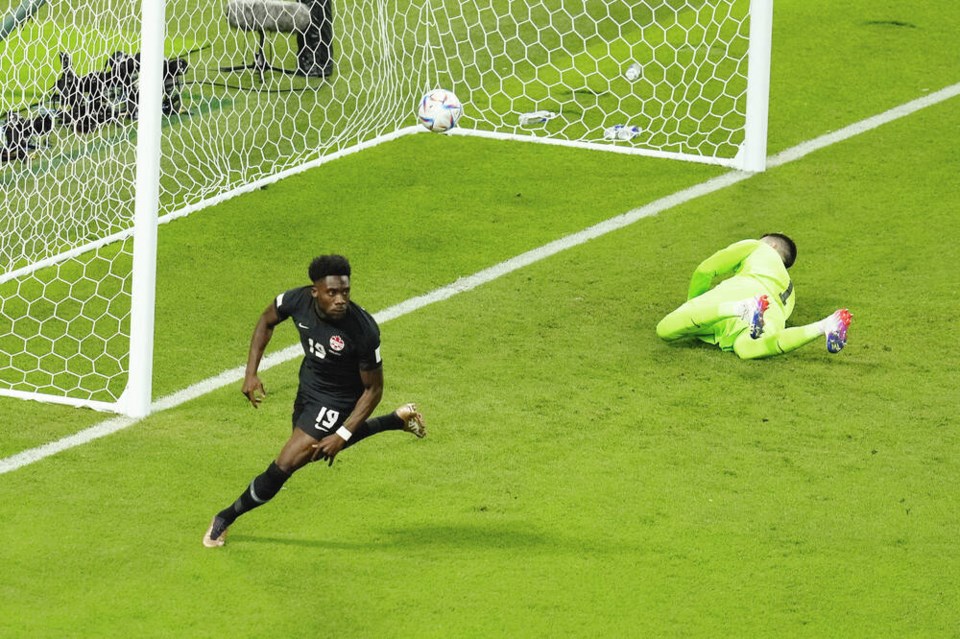Toto, we have a feeling we’re not in CONCACAF anymore.
As Canadian soccer experts across the country mulled Sunday’s sobering 4-1 World Cup loss to 2018 finalist Croatia, Jamie Lowery of Victoria put it best: “We learned there is still one other level.”
It was always naïve to think otherwise, although Canada’s run to the top of regional CONCACAF qualifying and a surprising opening performance against No. 2 Belgium, perhaps lulled people into a false sense of belief.
“We discovered what a massive learning curve this is going to be. It may take us up to 2026 to learn it,” said Port Alberni-product Lowery, who played for Canada in the 1986 World Cup, and is in Qatar to watch Canada’s return 36 years later.
“We scored first and early but all that did was awaken the sleeping giant that is Croatia. They exposed us big time in a lot of areas.”
Canada was left wanting against Croatia, which was even more acutely disappointing after taking the play to the albeit fading Golden Generation of No. 2 Belgium in the first game, despite losing 1-0.
“This was a difficult result to take after Belgium,” said Pacific FC head coach James Merriman.
“Croatia grew into the game. For Canada, it turned into a lesson about learning and embracing what it takes to be on this stage.”
The gap between the top tier and the rest was brutally exposed by Croatia against Canada.
“All their [Croatian] players are like Alphonso Davies,” said Vince Greco, executive director of the Vancouver Island Soccer League, about the level of talent on top-tier national sides.
There are two things in sports you can’t teach — speed and finishing. You either have those or you don’t.
“It’s the simple things you notice in the difference between the top tier and the rest, like give them half a chance, and they will bury the ball in the net,” said PFC bench boss Merriman.
“That finishing quality is what makes the difference. The Belgians were clinical on their one chance and the Croatians slotted the ball well four times. But you are seeing Canadian players over the years refining that skill. It’s coming.”
With Canada officially eliminated ahead of its final group game at 7 a.m. Thursday against African-champion Morocco, it won’t really matter now until 2026 when Canada co-hosts the World Cup with Mexico and the U.S., although showing well in events like the CONCACAF Gold Cup and Copa America will be important in terms of world ranking and growing respect.
“There is a chance for us to save face against Morocco,” said George Pakos of Victoria, who played for Canada in the 1986 World Cup.
“We were poor in all aspects and a step behind against Croatia. But we are going to be fine,” added Pakos, whose two key goals in the final round of qualifying propelled Canadian into the 1986 World Cup.
“Most of our main players now are in their 20s and I believe we are on the right path to 2026 and getting stronger.”
VISL boss Greco concurred: “Even [Canadian coach] John Herdman screwed up a bit in this World Cup but we will learn from this experience. Before the process began to qualify for this World Cup, the gap was larger and we were a lot further behind. We have closed the gap over the last few years.”
What has become clear, however, is the next step will be the steepest.
cdheensaw@timescolonist.com
>>> To comment on this article, write a letter to the editor: letters@timescolonist.com



